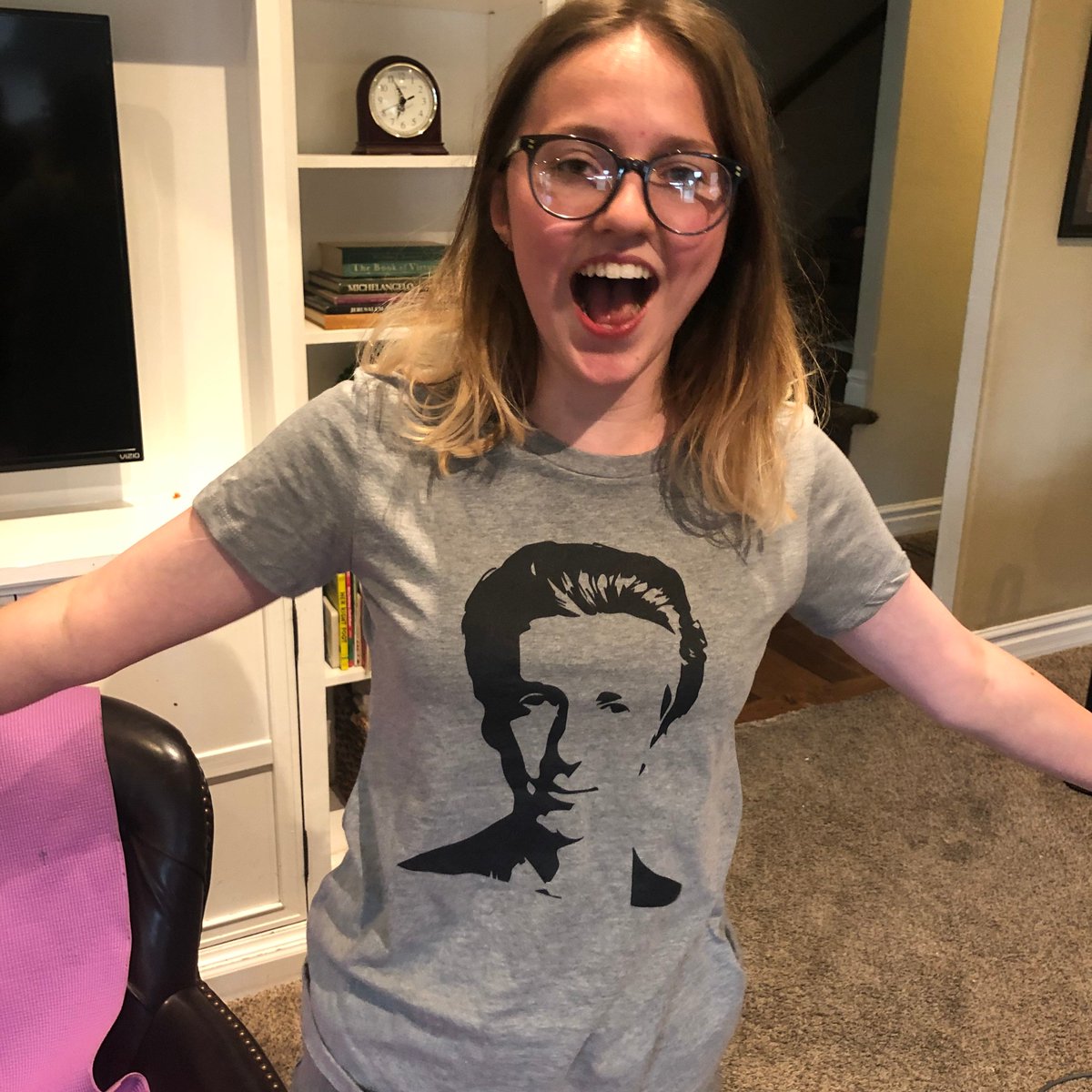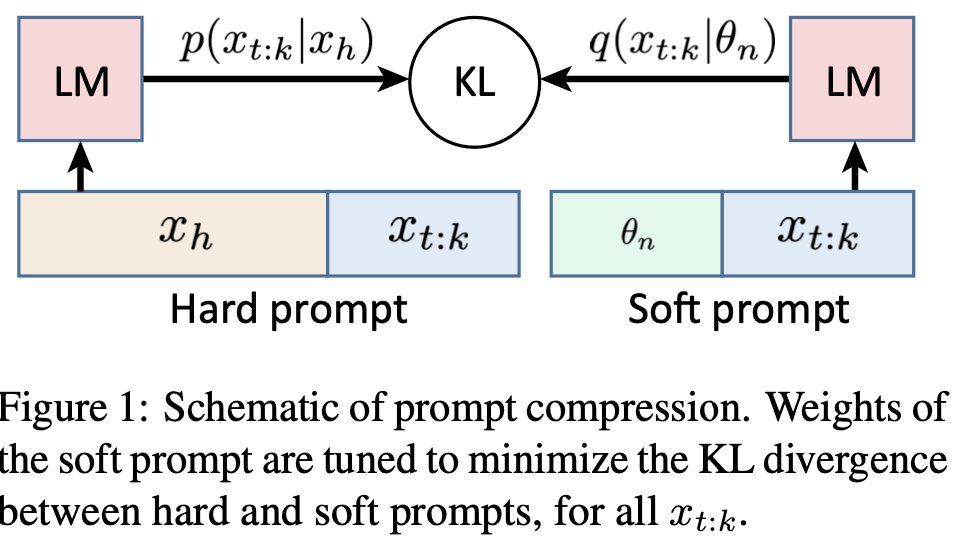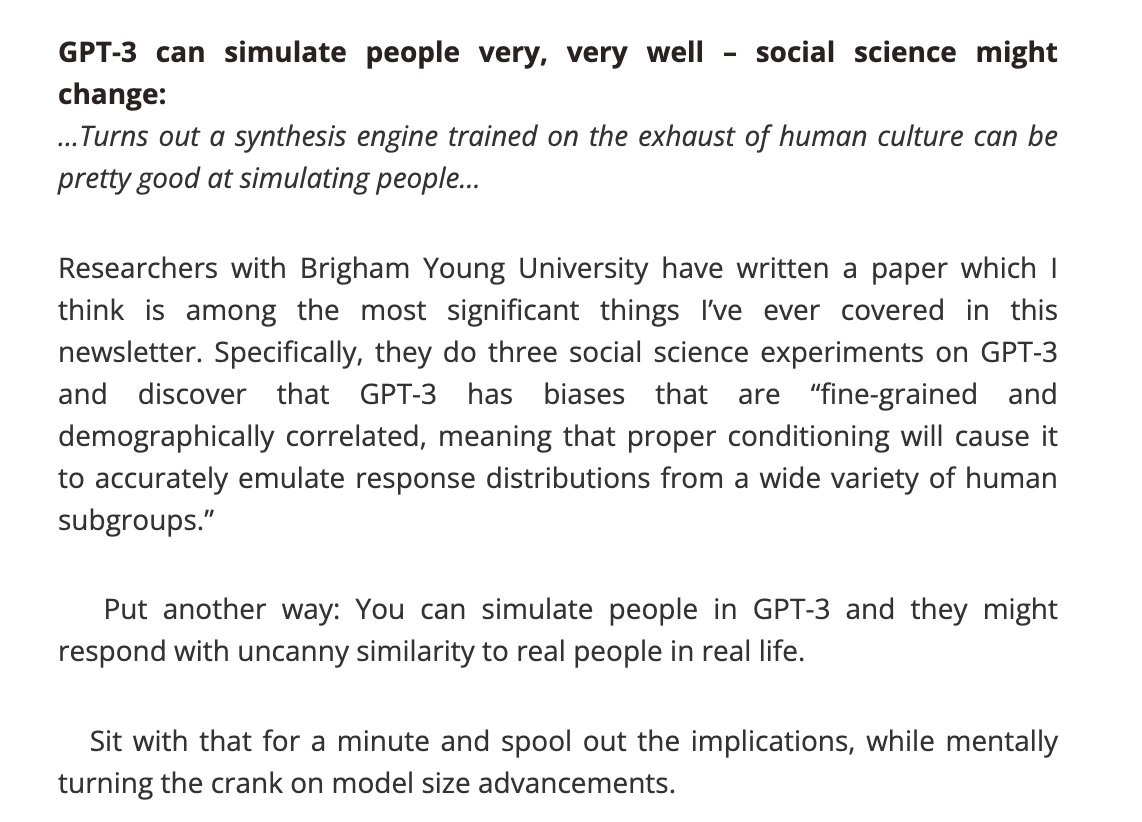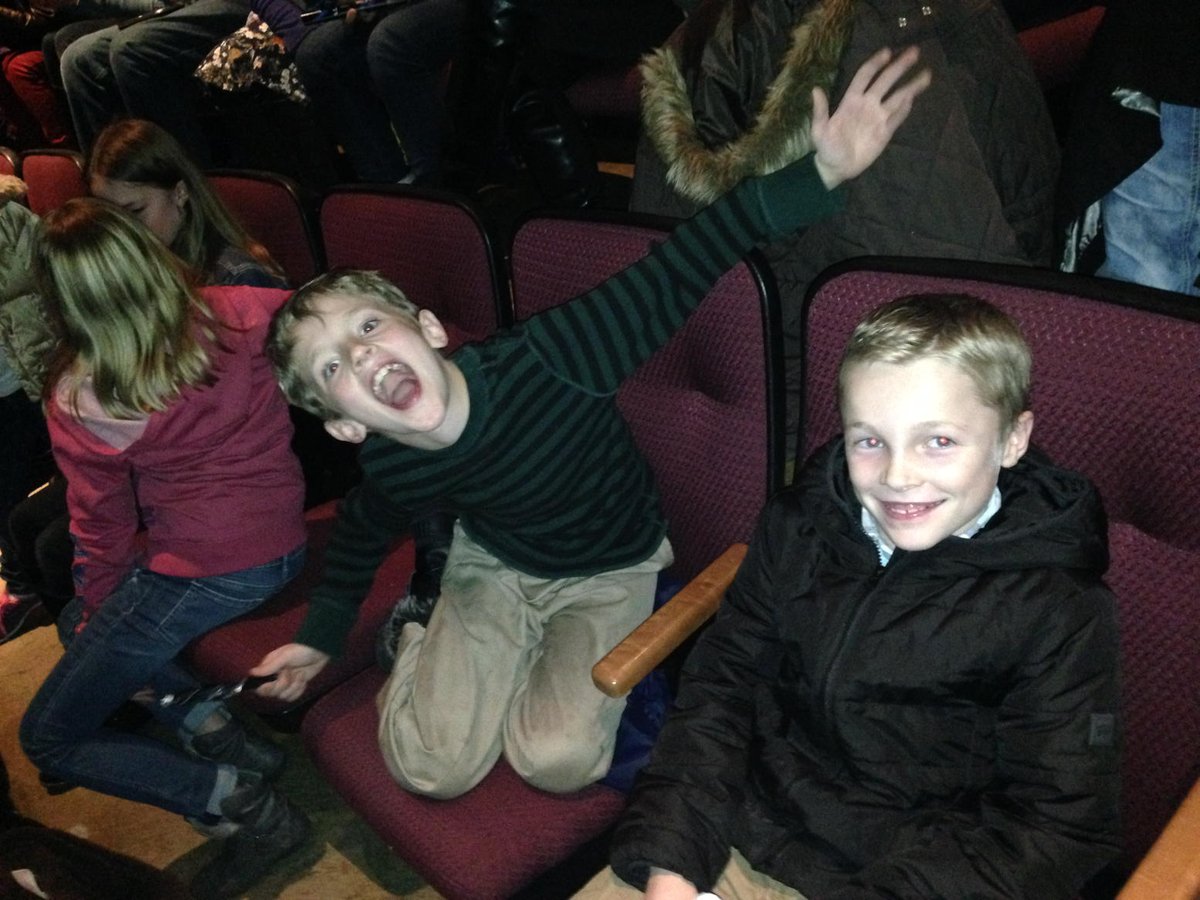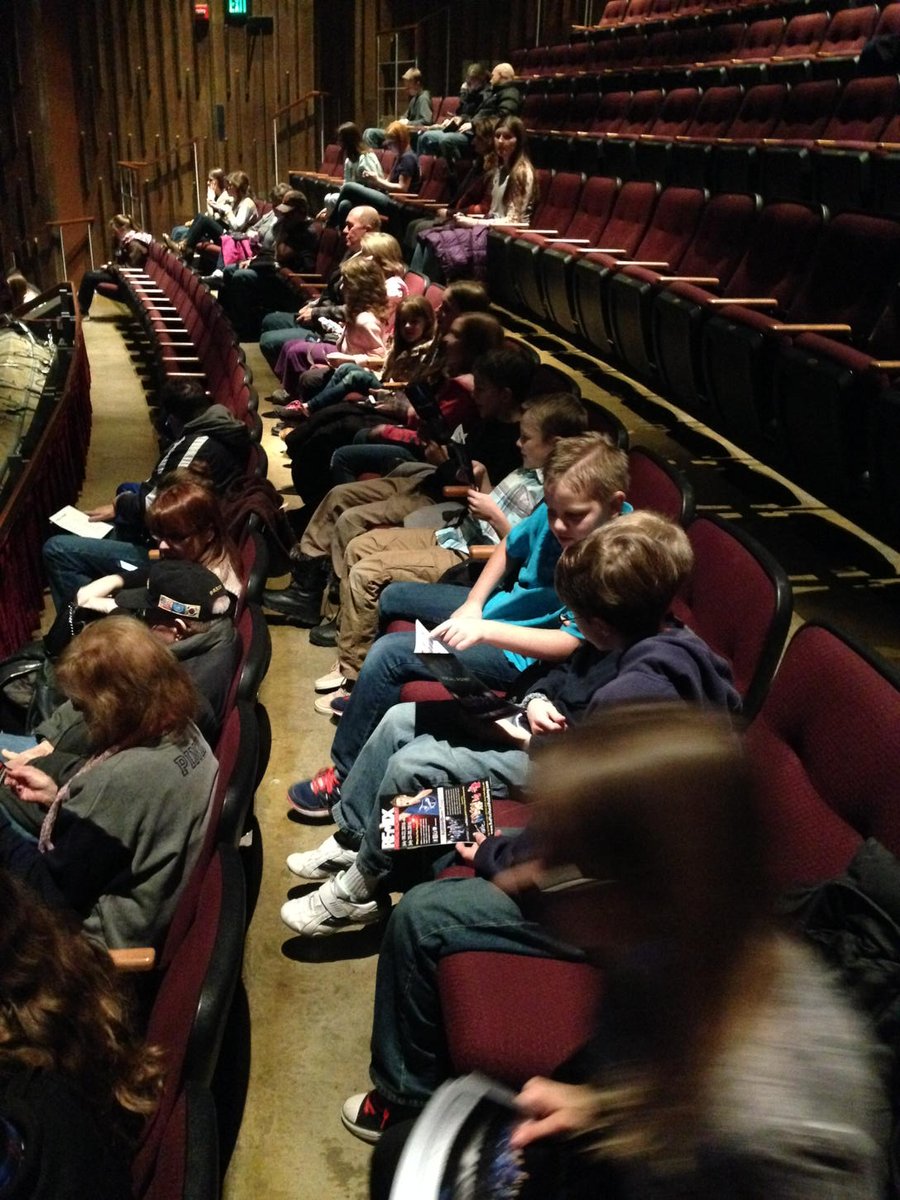
David Wingate
@davidwingate
Father of nine. Professor of computer science at BYU; working on big language models. Mormon and lovin' it!
ID: 157335213
http://pcc.cs.byu.edu/ 19-06-2010 14:17:07
27 Tweet
136 Followers
35 Following


Excited and grateful that our research team just received an NSF EAGER grant to further research using large-scale language models to study human attitudes. A great team: Lisa Argyle Ethan Busby David Wingate Nancy Fulda Chris Rytting Tsor

What would a social science Turing test look like? Amazing new research by Lisa Argyle et al. shows GPT-3 can create “silicon samples” that impersonate respondents to large surveys such as the American National Election with remarkable accuracy. tinyurl.com/yawzftfz.
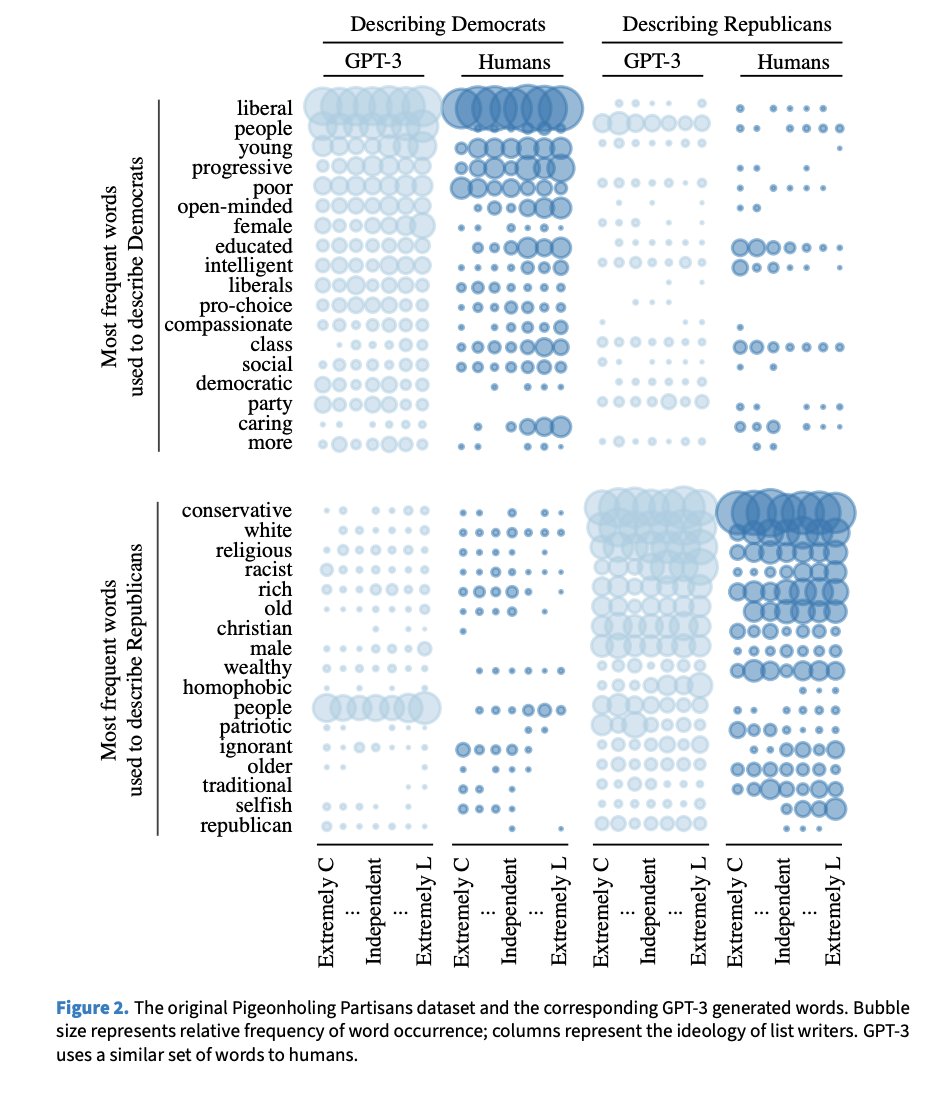

Can we use GPT-3 to better understand human preferences? It was trained on the internet after all. Really cool work from Lisa Argyle, David Wingate, Chris Rytting, and team arxiv.org/abs/2209.06899
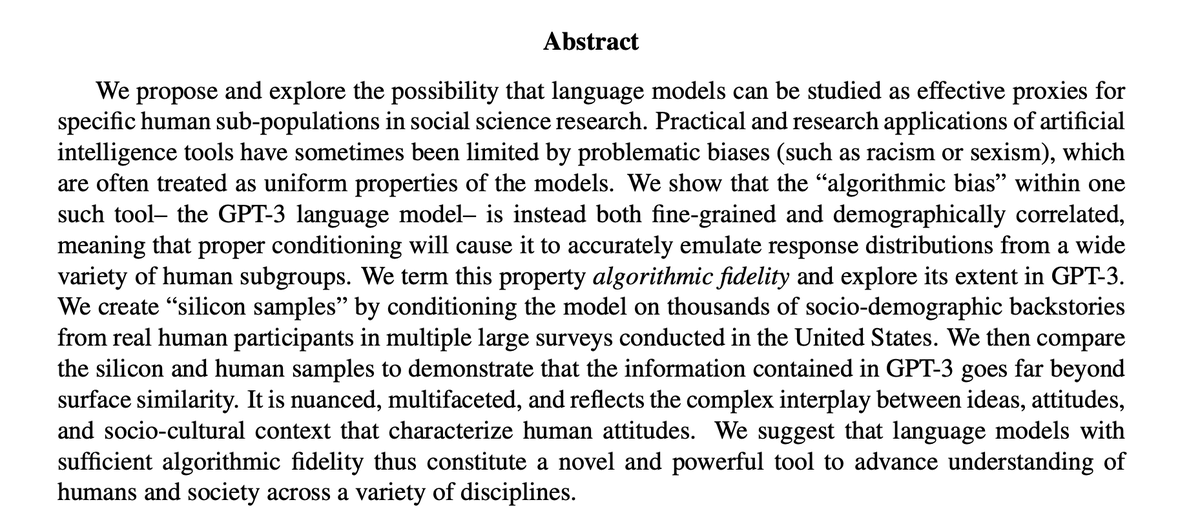

In a new paper, we ask whether you can use GPT-3 to survey humans by simulating those humans and asking them questions, as opposed to interviewing the actual humans. arxiv.org/abs/2209.06899 w/ David Wingate Ethan Busby Joshua Gubler Lisa Argyle Nancy Fulda
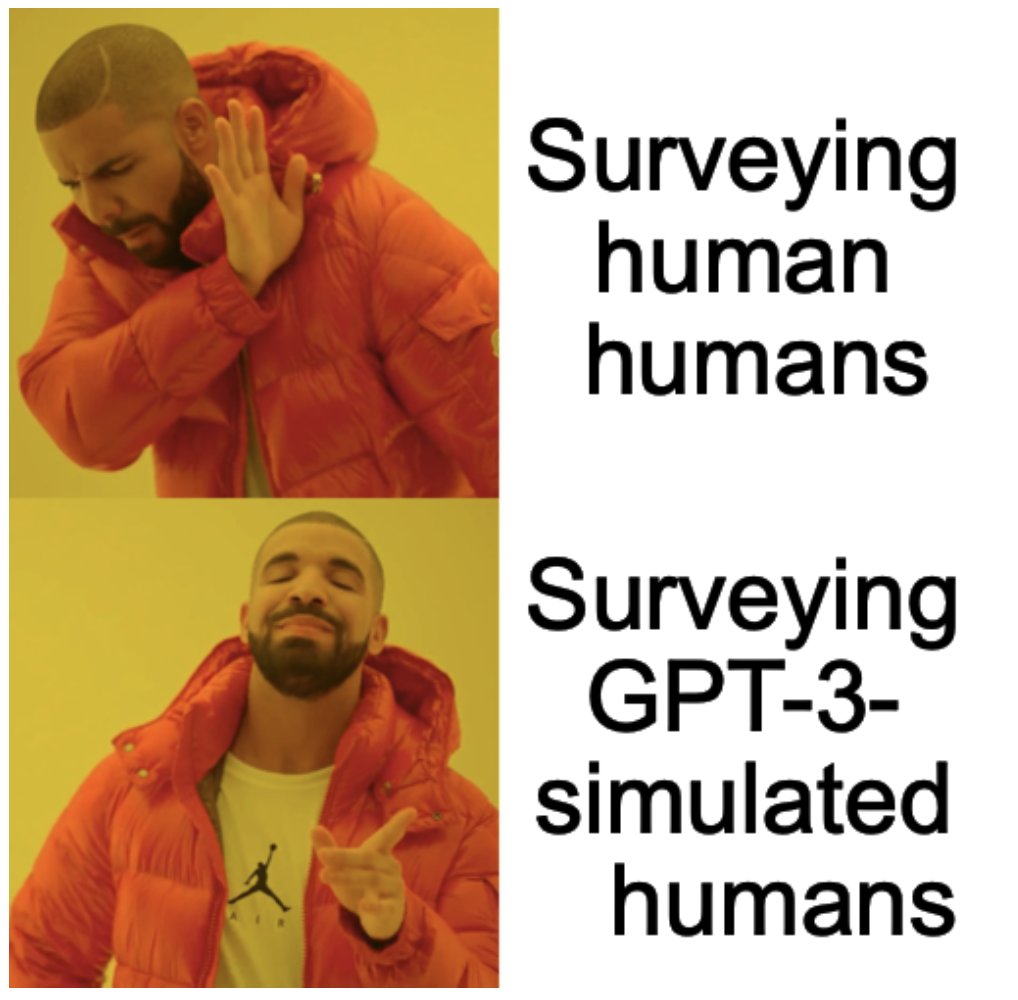



This work was done in collaboration with David Wingate and Mohammad Shoeybi near the end of my time BYU - reach out with questions!

Brendan Nyhan (@BrendanNyhan on 🟦☁️) GPT-3 is remarkable! We have a paper (forthcoming soon) that shows some of the power of GPT-3 when applied to social science — here’s the link to the arxiv version of the paper: arxiv.org/abs/2209.06899

Joshua Gubler Brendan Nyhan (@BrendanNyhan on 🟦☁️) Exciting project, co-authored with David Wingate Chris Rytting Lisa Argyle Nancy Fulda . Although we didn't ask about Sesame Street (we should have!)

Using LLMs for social (simulation) science arxiv.org/abs/2209.06899 Once we figure out how to scale it, this approach could revolutionize agent-based simulation modeling for nuanced, multifaceted silicon samples cc Michael Bommarito,Computational Legal,@jg_environ h/t Jack Clark Import AI
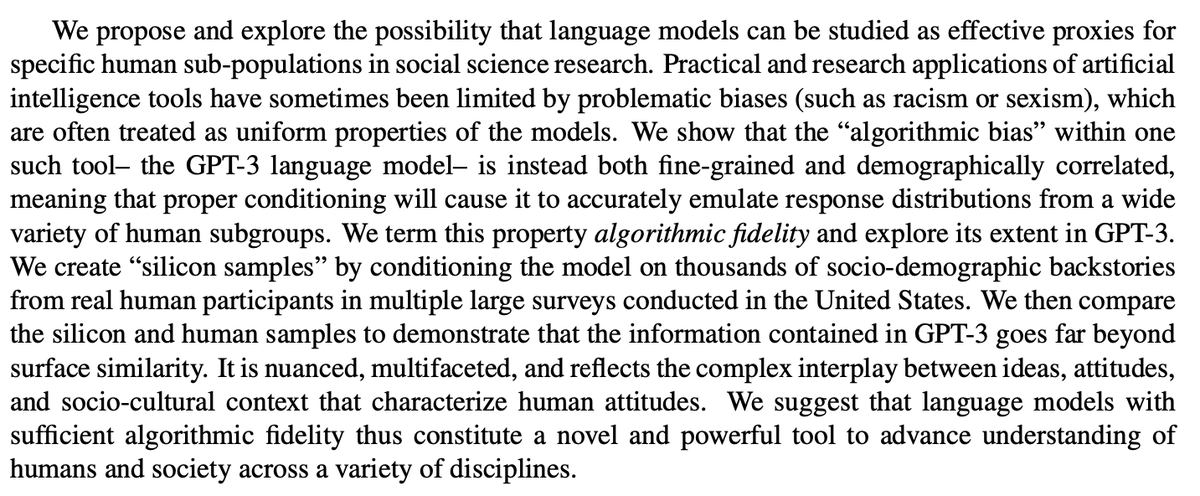



Aviv Ovadya 🥦 abe Joon Sung Park Thanks for the interest in our work! We're working on figuring out how prompting GPT-3 compares to priming experiments with humans, but we don't have a systematic answer yet. Stay tuned! Nancy Fulda Joshua Gubler Ethan Busby David Wingate Chris Rytting

It's so cool to see this work go from a random idea Chris Rytting and team had to a significant and impactful paper. You all should read the paper and follow Chris.

Great discussion of our project about using GPT-3 for social science research on the NYT Hard Fork podcast! Min 51. podcasts.apple.com/us/podcast/leg… Joshua Gubler Ethan Busby David Wingate Chris Rytting Nancy Fulda

This is today's #mustread and easily one of the top #ai papers of 2022 on first glance. I want to dig more into the methods on this, but my preliminary run through finds some fascinating patterns! Shea Brown , would you want to join F. LeRon Shults…lnkd.in/e2QR6SbW



